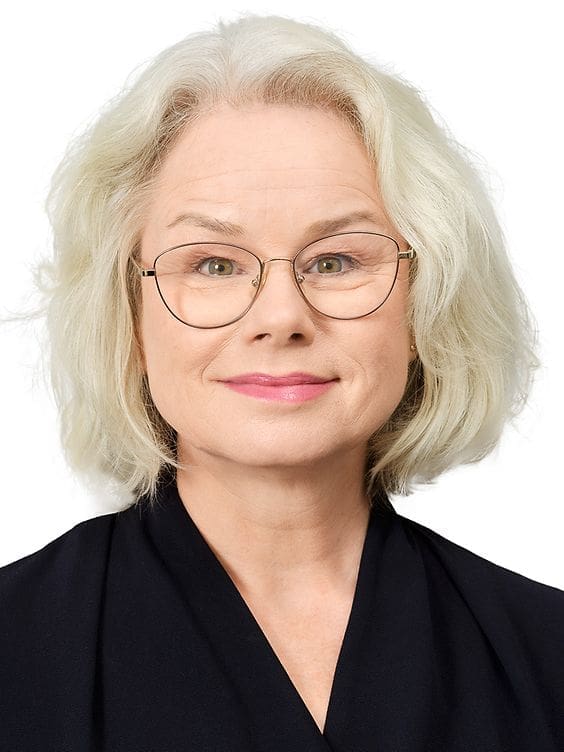INQUIRY with Member of Parliament Dr. Kirsten Kappert-Gonther “The climate crisis is the greatest health threat of our time.”
In an interview with MedLabPortal, Green MP and psychiatrist Dr. Kirsten Kappert-Gonther sheds light on current grievances in the healthcare system, from pandemic scandals to migration medicine. As former Chair of the Health Committee, she calls for more education, preventative screenings and a stronger focus on One Health in the context of the climate crisis.
She has been politically active with B├╝ndnis 90/Die Gr├╝nen since 2002. From 2011 to 2017, she was a member of the Bremen Parliament, where she acted as spokesperson for health, religious and cultural policy and deputy parliamentary group leader. She has been a member of the German Bundestag since 2017 and has been a member of the Health Committee since then, which she chaired in the 20th legislative period.
MedLabPortal: Dr. Kappert-Gonther, according to consistent reports, Jens Spahn has caused Germany’s taxpayers several billion euros worth of damage during the coronavirus pandemic. What do you make of this?
Kappert-Gonther: While every euro in the healthcare system is being fought over today, billions have disappeared in Spahn’s mask deals. Minister Warken must clarify – not cover up.
MedLabPortal: We ask because this money can be used for more medically sensible things than buying overpriced masks. At the German Congress for Laboratory Medicine 2024 in Bremen, the Vice President of the German Society for Clinical Chemistry and Laboratory Medicine, Prof. Mariam Klouche, pointed out the increasing importance of migration medicine. To put it simply: epidemics such as tuberculosis and syphilis are increasingly arriving in Germany. Why has no one in the Health Committee addressed this issue in order to fund the necessary mass laboratory medical screenings for refugees?
Kappert-Gonther: First of all, of course, you have to be very careful in the debate not to stir up xenophobic resentment. I think it is right to increase screening for tuberculosis. This will enable those affected to receive the right treatment promptly and at the same time counteract the spread of the disease. However, preventative screenings, such as the PAP test, should also be increasingly promoted. In many countries, the HPV vaccination is not available and many refugee women have a higher risk of cervical cancer. Screening would be necessary and sensible in order to be able to treat them at an early stage and thus save the affected women suffering and the system costs. It is crucial not to forget the rights and dignity of refugees in this debate. In principle, asylum seekers should be given earlier access to standard care.
MedLabPortal: In any case, we were surprised that laboratory medicine is not mentioned at all in the current coalition agreement; this specialty was also not mentioned in the coalition agreement of the Ampel party. Are the members of the German Bundestag aware of the importance of laboratory medicine?
Kappert-Gonther: It is only partially known that the field of laboratory medicine and the associated surveillance play a central role in fair and good national and global healthcare. Prof. Klouche’s work points the way forward for global health.
MedLabPortal: You yourself are a physician and can therefore talk to representatives of the DGKL on an equal footing. You recently had an exchange of ideas with Professor Klouche and the representative of the DGKL Executive Committee, Jan Wolter, during a laboratory visit in Bremen. Were there any concrete results that you will present to your colleagues in the Health Committee?
Kappert-Gonther: The dangers of the global spread of zoonoses in the wake of the climate crisis are considerable. I was impressed by the important preventive services that laboratory medicine can provide here. The coalition of the CDU/CSU and the SPD rejects the establishment of a subcommittee on global health. If we prevail and the subcommittee is still set up, I want to ensure that we hold an expert discussion on the prevention of zoonoses in the subcommittee.

MedLabPortal: We are also concerned with climate change. In Germany, everything in this area revolves around the Building Energy Act, but nobody in political Berlin is talking about diseases that are emerging in Germany as a result of climate change. Where do you see tasks for the Health Committee, which you chaired for a long time?
Kappert-Gonther: You are addressing a crucial issue here! The climate crisis is the greatest health threat of our time. This ranges from more heat-related deaths and an increase in mental illnesses during hot spells to an increase in allergies and the rising risks of the zoonoses and pandemics I have already mentioned. Debates on these topics have taken place in the Health Committee under my chairmanship. Overall, however, One Health is still a topic that falls under special interest rather than us finally understanding that One Health is crucial for the future of us all.
MedLabPortal: The topic of One Health has not actually arrived in doctors’ surgeries. And if the ideas of Federal Health Minister Nina Warken become reality, GPs in private practice will probably have less time for their patients, not more. As Minister of Health, how would you persuade the medical profession to also request special laboratory services in order to be able to recognize the challenges of One Health medicine in the first place?
Kappert-Gonther: To ensure good healthcare in the future, we need to establish a primary care system, not just a primary care system.
MedLabPortal: Ms. Kappert-Gonther, thank you very much for your time.
The questions were asked by Marita Vollborn and Vlad Georgescu
Read also:
The Lancet: Health threats from climate change reach record-breaking proportions – MedLabPortal
Editorial office: X-Press Journalistenb├╝ro GbR
Gender note. The personal designations used in this text always refer equally to female, male and diverse persons. Double/triple references and gendered designations are avoided for the sake of better readability ected.




